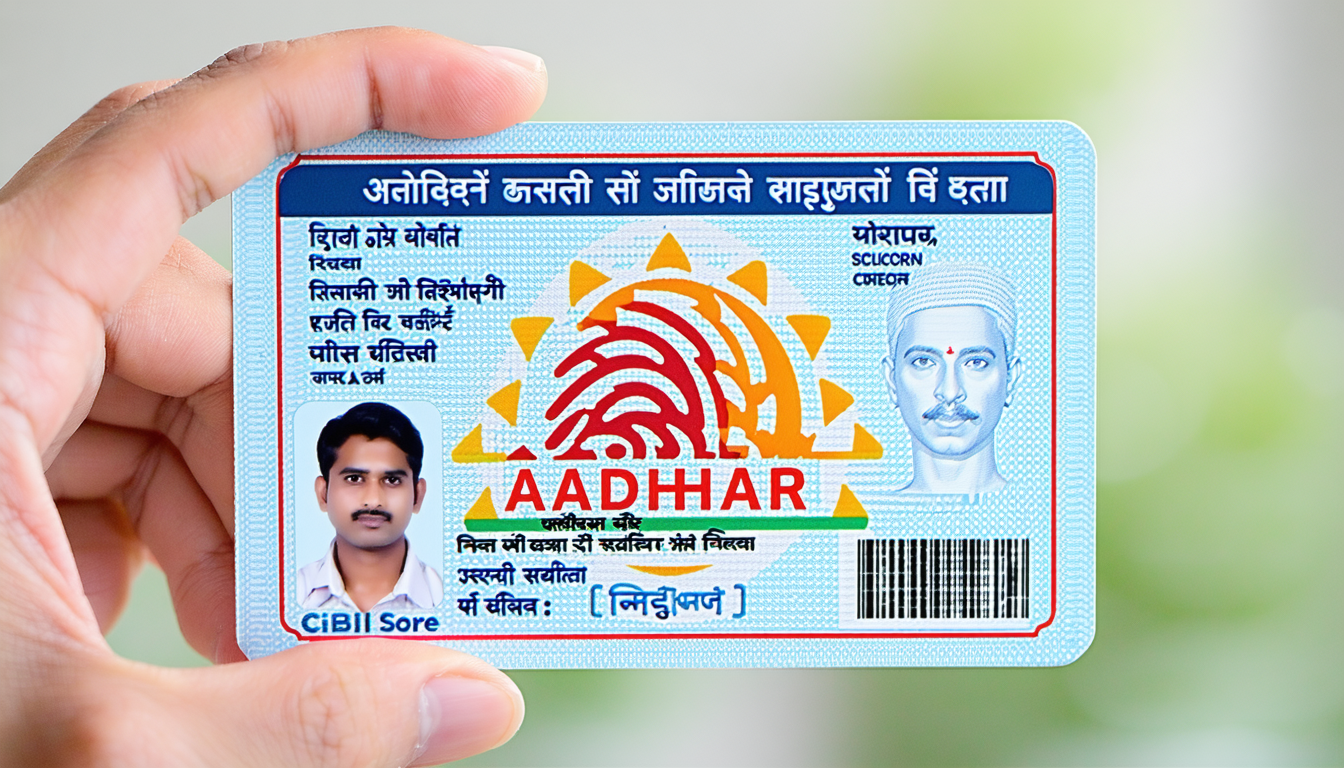In a significant development for Indian citizens residing in the United States, recent discussions have emerged about the potential linkage between Aadhaar cards and CIBIL scores. This connection aims to streamline credit assessments for Non-Resident Indians (NRIs) seeking financial services in India. Announced in early 2023, this initiative could impact millions of NRIs managing assets or loans in India. Why does this matter? It promises easier access to credit but raises privacy concerns. This article explores the latest updates, implications, and what it means for those in the U.S.
Understanding the Aadhaar Card CIBIL Score Connection
The Indian government and financial institutions are exploring ways to integrate Aadhaar, a unique 12-digit identification number, with CIBIL scores, a key metric for creditworthiness. This move intends to simplify identity verification and credit evaluation for NRIs. As of October 2023, pilot programs are underway in select Indian states, with potential nationwide rollout by mid-2024.
According to financial expert Priya Sharma, “Linking Aadhaar with CIBIL could revolutionize how NRIs access loans in India.” She notes that this could reduce processing times for credit applications by up to 30%. However, the plan is still in its early stages, with no official mandate yet.
Implications for NRIs in the United States
For the over 4 million Indian diaspora members in the U.S., this linkage could be a game-changer. Many NRIs maintain bank accounts, property, or investments in India, often requiring loans or credit facilities. A unified system might mean faster approvals and fewer documentation hurdles.
Yet, challenges remain. Data security is a top concern, as Aadhaar contains sensitive biometric information. Any breach could expose personal details, impacting both financial and personal safety. Additionally, not all NRIs have updated Aadhaar details, which could delay their inclusion in this system.
Key points to note:
– Over 1.3 billion Indians have an Aadhaar card as of 2023.
– CIBIL scores impact 80% of loan approvals in India.
– U.S.-based NRIs may need to update Aadhaar remotely via designated portals.
Privacy Concerns and Security Measures
The integration of Aadhaar with CIBIL scores has sparked debates over data privacy. Critics argue that combining identity and financial data increases risks of misuse or hacking. In response, Indian authorities have promised robust encryption and strict access controls to safeguard information.
Technology analyst Rohan Kapoor states, “While the intent is efficiency, protecting user data must be non-negotiable.” He emphasizes the need for transparency in how data is shared between agencies. The government has assured compliance with India’s Digital Personal Data Protection Act, enacted in 2023, to address such fears.
On the flip side, supporters highlight that similar systems exist globally. For instance, credit bureaus in the U.S. link social security numbers with credit histories without major issues. Still, striking a balance between convenience and security remains critical.
Analysis and Future Outlook
The potential linkage of Aadhaar card and CIBIL score holds immense promise for simplifying financial processes for NRIs in the United States. It could reduce bureaucratic delays, making India a more attractive destination for investment among the diaspora. If successful, experts predict a 15% rise in NRI loan applications by 2025.
However, the rollout must address privacy concerns to gain trust. Both advocates and skeptics agree that public awareness campaigns are essential to educate users on benefits and safeguards. Looking ahead, this system might expand to other countries with large Indian populations, like Canada or the UK.
The broader implication lies in how technology reshapes global finance. As digital identities become central to transactions, ensuring security will define trust in such systems. Will this initiative set a precedent for other nations? Only time will tell.
In conclusion, while the Aadhaar-CIBIL integration offers efficiency for U.S.-based NRIs, it walks a tightrope between innovation and risk. The coming months will reveal whether this bold step transforms access to credit or stumbles over privacy hurdles. For now, staying informed is key for those affected.
Frequently Asked Questions (FAQ)
1. What is the link between Aadhaar card and CIBIL score?
It’s a proposed integration to connect Aadhaar identification with CIBIL credit scores in India. This aims to simplify credit assessments, especially for NRIs.
2. How does this affect NRIs in the United States?
U.S.-based NRIs may experience faster loan approvals in India. However, they must ensure their Aadhaar details are updated to benefit.
3. Are there privacy risks with this linkage?
Yes, combining personal and financial data raises concerns about breaches. Indian authorities are implementing strict security measures to mitigate risks.
4. When will this system be fully implemented?
Pilot programs are active as of October 2023. A full rollout across India is expected by mid-2024, pending successful trials.
5. Can NRIs update Aadhaar from the U.S.?
Yes, updates can be made online through official portals or at designated centers abroad. Check the UIDAI website for specific guidelines.
This evolving story continues to shape financial interactions for millions. Stay tuned for further updates on this critical development.




